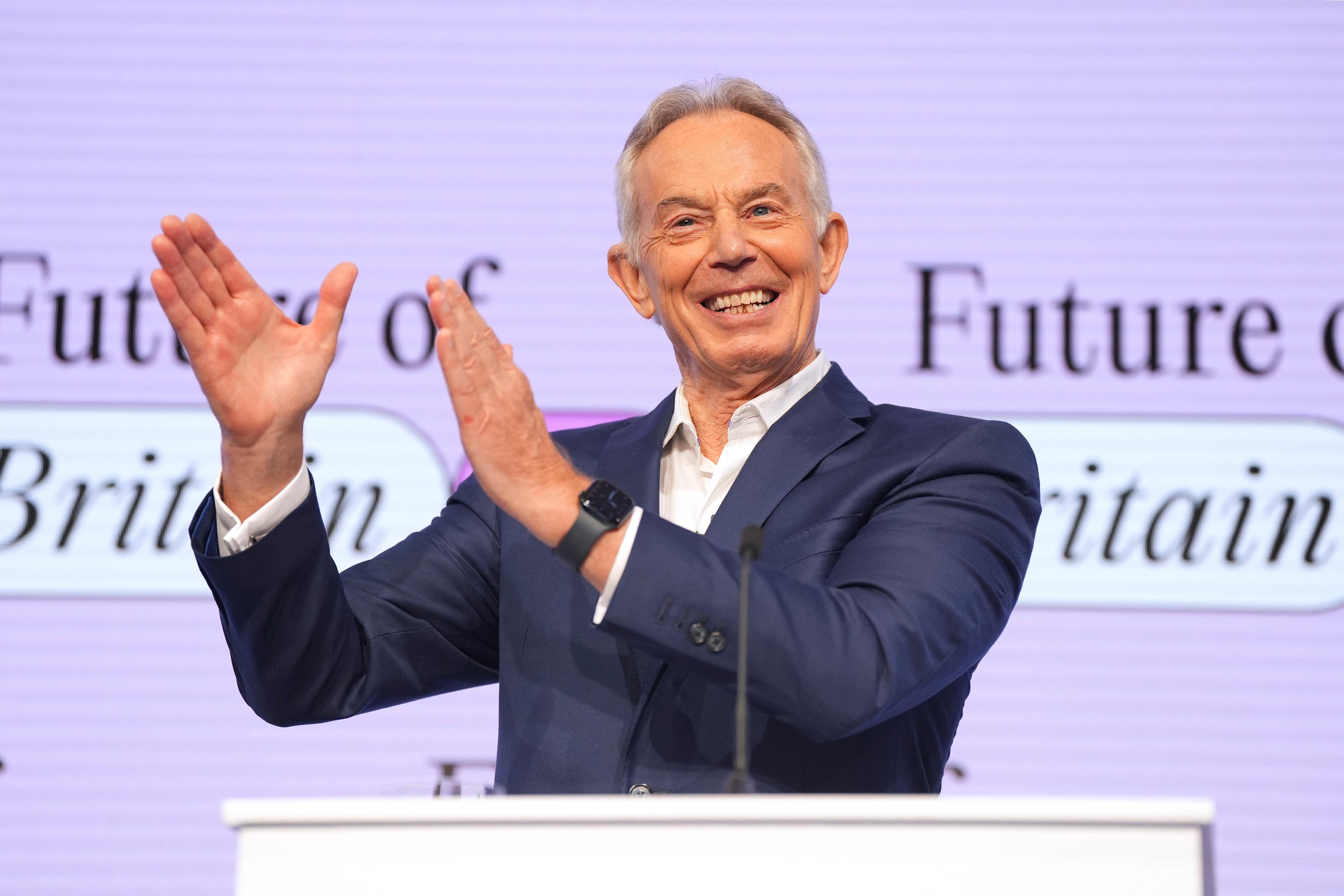There is one area where ‘steady Starmer’ can’t afford to be cautious
Artificial intelligence will kickstart a technological revolution that will save taxpayers billions of pounds a year, boost economic growth and rescue the NHS – if Tony Blair is to be believed. So why is the new PM not entirely convinced, asks Andrew Grice


Rachel Reeves deliberately buried the most significant part of her first big speech as chancellor by outlining lots of important measures to boost growth such as streamlining planning laws and building more homes.
I suspect the sentence we will look back on was her announcement she has asked Treasury officials to assess “the state of our spending inheritance”. This would pave the way for “difficult choices” in her autumn Budget – barely disguised code for tax rises, higher borrowing or spending cuts.
The Conservatives are wrong to claim Labour is implementing the secret plans to raise taxes Rishi Sunak warned about ad nauseam during the election. I don’t think Keir Starmer and Reeves intend to break the spirit or the letter of their pledges on tax; they know such a breach of faith would hardly help them win the public trust Labour needs.
But they have ruled out a “return to austerity” – and it’s hard to imagine them imposing the £20bn of spending cuts the Tories kindly bequeathed them. A bleak Treasury assessment could give Reeves cover for some “fair” tax rises for those with the broadest shoulders, and/or to tweak her fiscal rules to allow more borrowing.
Labour would inevitably try to pin the blame on the Tories. Expect several more reviews with the same objective. Labour still bears the scars of David Cameron and George Osborne brutally blaming a global financial crisis for their 2010 austerity measures. Wrong, but the public bought it. Now Labour wants to turn the tables.
Another possible escape route from the UK’s doom loop of low growth, low productivity, high tax and high debt was mapped out by Tony Blair at his think tank’s Future of Britain conference today.
The former prime minister’s religious zeal for artificial intelligence was on full display in his speech. Not only could AI transform public services to make them more efficient and better, but this technological revolution – bigger, he argued, than the 19th-century industrial revolution – could be a magic money tree just when Reeves has inherited what she called “the worst set of economic circumstances since the second world war”.
The Tony Blair Institute (TBI) calculates public sector reforms could create £12bn a year of extra fiscal room in five years, and £40bn a year in a decade. Rapid adoption of AI by the private sector could double these gains through higher tax revenue.
The former PM said: “Britain is facing an unenviable triple whammy of high taxes, heavy debt and poor outcomes. And worse is to come with the demographics of an ageing population against us, deep structural health problems and rising numbers of long-term sick. The simple and unavoidable truth is that, unless we improve growth and productivity, and drive value and efficiency through our public spending, we’re going to become poorer. Much poorer.”
Taxes would need to rise by about 2 per cent of GDP in five years and 3 per cent in a decade to stabilise debt, the TBI forecast. Blair clearly doubts the Starmer government’s recipe of growth will be enough to prevent this – he insisted AI is the only way to break the “unvirtuous cycle”.
Too good to be true? Possibly. Blair admitted his figures on the public finances were speculative. Some senior Labour figures privately think Blair’s new religion is too influenced by the gospel of the tech giants who partly fund the TBI, creating a virtuous circle for them because the building blocks of this revolution will come from the private, not public sector. However, the TBI produces excellent reports and will be very influential on the new government.
Starmer rightly talks to Blair, but he is the master now and so he won’t take all of his advice. Blair quipped he has got some persuading to do on digital ID cards (his solution to the migration crisis) after Jonathan Reynolds, the business secretary, ruled out the idea.
There will be trade union anxieties that AI will mean job cuts after the TBI said it could “save a fifth of workforce time” in the public sector. AI could finally make prevention rather than cure a reality in the NHS – but safeguards will be needed if the government adopts Blair’s plan to sell access to anonymised NHS medical records to fund cutting-edge treatments.
However, Starmer cannot ignore the possible benefits to the public finances and Blair’s view that AI could enable this government to be a transformative one. Despite all the pessimism, Blair argued: “I don’t think there has ever been a better time to govern.”
Blair is right in one sense: we are in an AI race whether we like it or not, and we can’t afford to lose it. This is one area in which Starmer cannot afford to take the cautious route, one where stability does not equal change. But it will fall to the government to strike a balance between the risks and opportunities, and be a leader in securing international agreements – not least so AI is nowhere near the control of nuclear weapons or the creation of dangerous pathogens.
Starmer will probably end up with a third way. For once, Blair might be disappointed, but he shouldn’t be.






Join our commenting forum
Join thought-provoking conversations, follow other Independent readers and see their replies
Comments